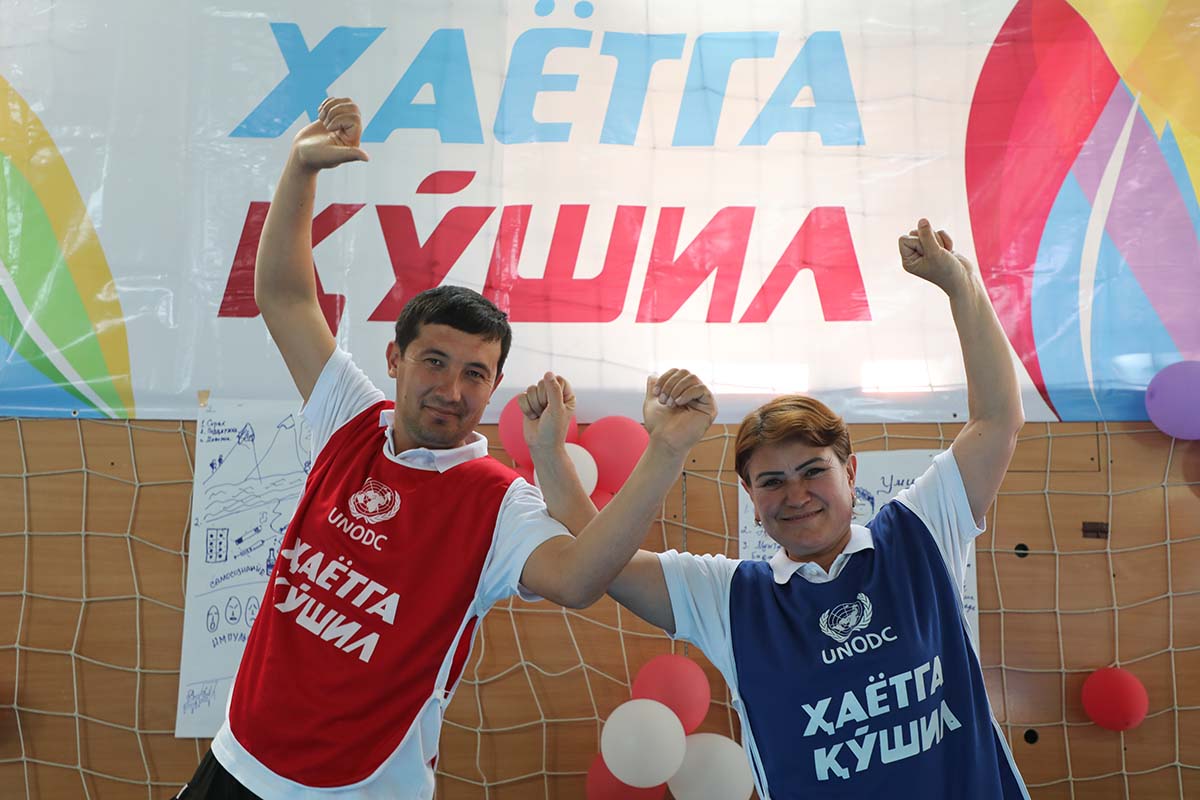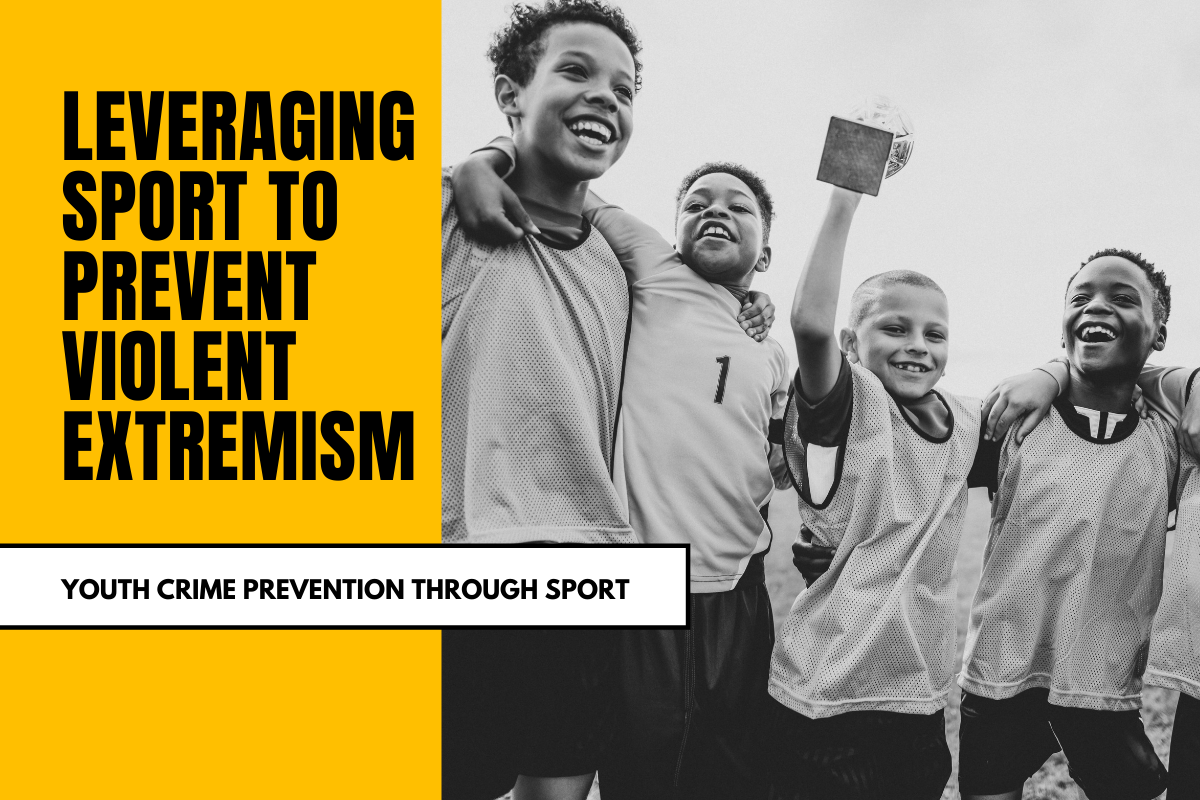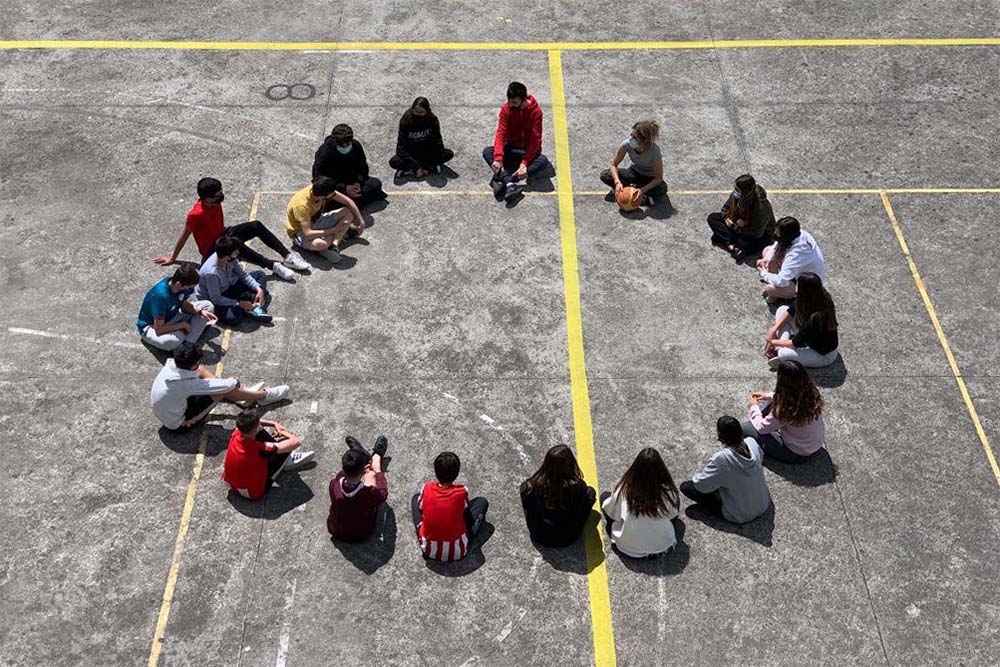Engaging young people in sports programmes can help reduce violent extremism
6 December 2019 -- Physical activities are an integral part of education in most countries today, and the popularity of different sports is universal, whether played in teams or individually. Increasingly, the practice of sports is also seen as one of the tools which can bring a crucial benefit to society: the prevention of violent extremism.
The Line Up, Live Up initiative, developed by the Youth Crime Prevention through Sports component of UNODC's Global Programme for the Implementation of the Doha Declaration, stems from the premise that sports can be a vehicle to increase young people's resilience to crime, violence and drug use. Through meaningful engagement with youth in marginalized areas or from disadvantaged backgrounds, Line Up, Live Up packs life skills training and physical activities during ten sessions with especially trained coaches.
Experts in the field note that there are degrees of commonality (in terms of risk and protective factors, approaches, methodologies and sought outcomes) between prevention of violent extremism programmes, crime and violence prevention programmes, and sports for development and peace programmes. Although they cannot be the solution to every problem, sports programmes remain effective methods to confront the biggest risk factors for youth relating to crime and violence, including violent extremism.
To this end, the Global Programme is developing a practical guide for practitioners, meant to be used both as a reference document and as the basis for staff training and for developing sport-based activities to help prevent violent extremism. To review and discuss the guide in detail before its forthcoming launch, UNODC held an expert group meeting last week in Vienna, bringing together international specialists to add insight and share perspectives and best practices. Launching the discussion, Valerie Lebaux, Chief of UNODC's Justice Section, spoke of the importance of preventive measures: "Besides tackling the drivers of violent extremism, which are often rooted in challenges related to political development, to a lack of social cohesion or to feelings of social injustice, we need to promote a culture of prevention, which requires resilient young people."
|
Experts are unanimous on the fact that sports, per se, neither automatically limit potential attraction to extremist violence, nor solve problems merely by being part of young people's lives. They warned against considering sports as an easy solution to complicated problems, stressing that different challenges could emerge. Some sports, experts said, could sometimes be the cause of violent behaviour: "Where I grew up, every football game ended up with a fight," recalled Achaleke Christian Leke, National Coordinator of the Local Youth Corner, Cameroon. Some team sports could thus be a catalyst for violence, as could specific elite and ultra-competitive sports.
However, as all experts agreed, sports could also be an extremely powerful prevention tool, especially when developed with the local communities at the grass roots level. While the preparedness and knowhow of the coaches was considered one of the most important factors in the potential for success, it is also necessary to ensure that additional parameters were met. Amongst others, experts mentioned it was important for the young people to have an audience to watch and cheer them. "The process is important to them, as is having a fan club or spectators. The issue is not that they need to be seen as heroes, but that no one has ever told them 'you are doing good'," explained Mr. Leke.
But even this last point was a sensitive one: as discussed by several experts, it could also be counter-productive to emphasize youngsters' prowess. "There is a danger of false expectations as well, with young people suddenly thinking they are going to become professional athletes," said Ramón Spaaij, Professor at Victoria University in Melbourne, Australia, arguing that it was also necessary to manage expectations.
The mere designation of sports programmes as a prevention tool is considered a thorny subject as well. "There is a sense of being part of an oppressed group, of stigmatization. This is not just about troublesome identities, but also about how we promote positive identities," said Professor Spaaij. Young people are not meant to feel specifically targeted though these programmes, agreed Bram Van Haver of the United Nations Alliance of Civilizations (UNAOC): "We have to be careful about creating suspect communities."
|
Because sports have become so popular, and because their unifying power promotes team spirit and belonging, some experts warn that this can turn such initiatives into appealing hunting grounds for the very groups they are intended to deter: "We have to bear in mind that violent extremists also use sports to recruit young people. We have to bring this awareness to coaches, so they don't fall into the same trap," warned Fatuma Ahmed Ali, Lecturer at the United States International University in Nairobi.
Sports programmes can indeed help young people steer clear of violent extremism, as long as they are delivered by well-trained coaches, with the support of the communities in which they are engaged, and with the creation of a positive sense of belonging and identity - with uniforms, kits, local fan clubs, spectators and all the paraphernalia associated with team sports. Helping Member States, NGOs and civil society achieve this goal is the purpose of UNODC's Guide on the Prevention of Violent Extremism and Sport, due for release in Spring 2020.
Empowering and educating youth, including by fostering critical thinking and developing the behavioural and socioemotional skills that can contribute to peaceful coexistence and tolerance, are among the priorities set by the UN Plan of Action to Prevent Violent Extremism. Masood Karimipour, Chief of UNODC's Terrorism Prevention Branch, reminded experts that "the empowerment and engagement of young persons is a core element of effective interventions to prevent violent extremism, and sports could be an important tool in that process."
Likewise, youth development and engagement are cross-cutting issues in the 2030 Agenda for Sustainable Development, and an integral part of the Global Programme's Youth Crime Prevention through Sports component. As put by Marco Teixeira, Senior Programme Officer, "strengthening the resilience of youth is key for us, and our experience has shown that we can reduce crime and contribute to SDG16 with an intergovernmental process. We are confident our experience will allow us to help reduce violent extremism."
Additional information
Youth Crime Prevention through Sports
Line Up, Live Up Trainer Manual


